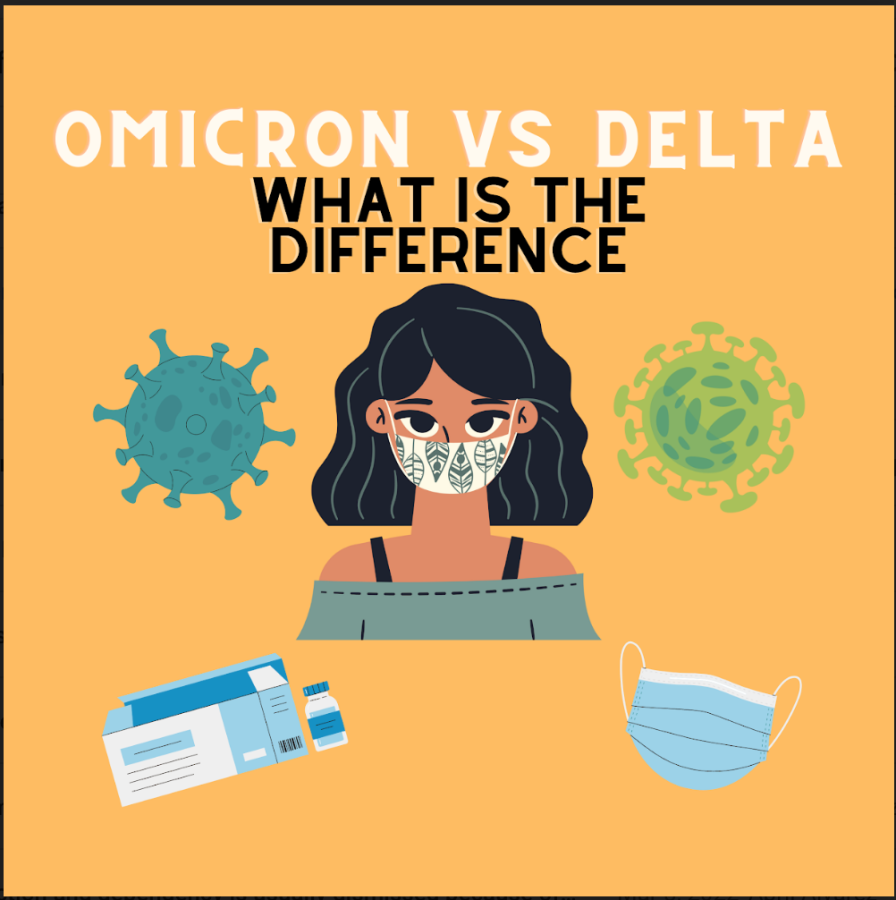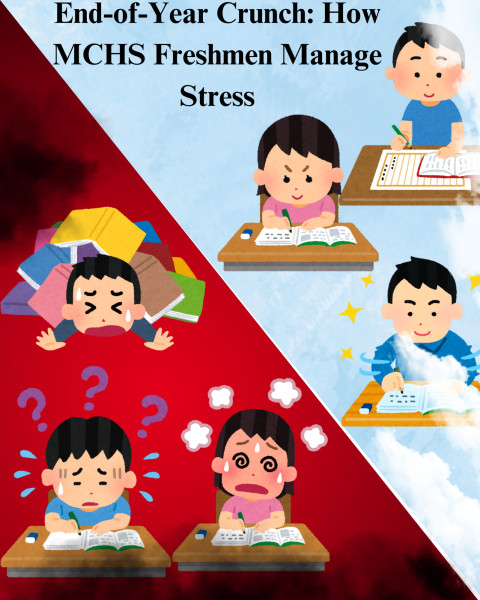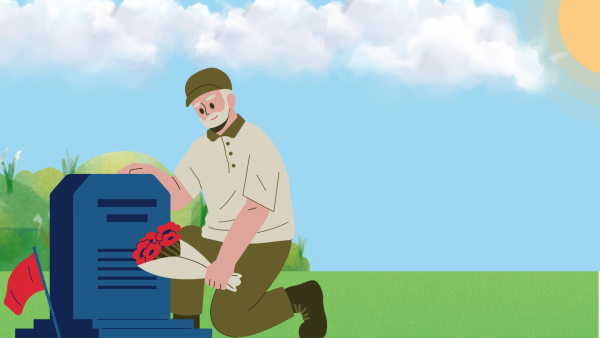The battle between the Delta and Omicron variants
Giovanna Nieto (made with Canva)
Omicron and Delta are the most known and contagious viruses.
As of December 2021, COVID cases were on the rise. People everywhere were getting sick and some even died from COVID. This raises the questions, what is Delta and Omicron? What’s the difference between them and how can you prevent the viruses from spreading?
Cases spiked from December to late January 2022, thus causing a new wave of COVID-19. Cases became even more serious for people with health problems and even with people who didn’t want to be infected. Some schools on the East Coast even closed and went online due to the fact that many of their students caught COVID. Mask regulations were back in some states and in some states, the requirement changed from wearing surgical masks to KN95 masks. The government also gave out 5 free COVID testing kits for residents to do at home tests in case they felt sick or were experiencing symptoms.
You may have wondered: What’s the Delta variant ? What’s the Omicron variant?
Dr. Susan Huang, the head of the epidemiology department at the UCI Medical Center, stated, “The Delta variant is probably the most virulent variant of the ones we’ve seen across the past two years, and it is fairly contagious, so it was known as the most deadly variant and then Omicron now has taken over.”
According to statista.com, we’ve had about 1.4 million confirmed Delta cases in the U.S and the numbers kept on growing in late December and January, but the numbers have decreased as of now. Omicron cases on the other hand, have had 78,389,155 cases confirmed. It’s estimated that about 900,000 have died from COVID-19.
Many students at MCHS have been vaccinated or at least have one vaccine. This leaves people wondering whether or not having the vaccine protects them against Delta and Omicron.
Huang said, “The vaccines, whether you’re looking at two doses or three doses they are working incredibly well to prevent hospitalization and death and that’s to across all the variants including Delta and also now proven with Omicron.”
The public is also concerned about what schools are doing in order to prevent students from getting sick.
At MCHS there are multiple precautions being taken. We are required to wear masks inside classrooms, we do weekly COVID testing on Thursdays, and some of our teachers have students clean their desks when they arrive to class.
Our campus health technician Chanel Kim said, “We do contact tracing. So if we we figured out that someone’s been exposed, we consider that being with the person who has COVID for more than 15 minutes for closer than 6 feet.”
People who’ve been exposed to the variants have experienced different symptoms and it seems like Omicron symptoms are much milder than the Delta variant. Both of these variants however, make the person experience having a fever, fatigue, and cough. The Delta variant does make the person experience symptoms quicker than Omicron and someone who gets Delta will also experience the loss of smell.
Huang said, “If you’re at home the most important thing to do is to know that the person was contagious two days before they developed symptoms.”
Those who experience any symptoms whether it be a mild cough, fever, headache, chills, loss of taste and or smell, should get tested immediately whether it be at home testing kits or going to an onsite testing place. When a person’s result comes back positive the person must quarantine for about five days including day zero which is the day you would initially get your result.
Huang stated, “The virus is really easy to kill. It’s one of the easiest things that can be killed by simple disinfectant so you just need to make sure whatever you touch with your hands to clean dirty dishes or to give food, to not touch your face before you go and wash those things off with soap and water or a disinfectant.”
However, if you’ve been exposed to COVID through someone, then your quarantine is a lot different especially if you’re vaccinated or not. If you’ve been exposed and are not fully vaccinated then your quarantine is 5 days but if you’re fully vaccinated then you don’t have to quarantine unless you do start to develop symptoms.
But does the vaccine really help fight against COVID and its variants?
Huang said, “There is now data that the vaccine will actually prevent that (hospitalization) from happening and can actually reduce long haul COVID.”
This gives us an insight of how important it is to be vaccinated because looking at the New York Times chart of the people who have died from COVID, is very scary knowing that these deaths could’ve been prevented if they were fully vaccinated.
Kim stated, “People who aren’t vaccinated report way more symptoms as well as being hospitalized.”
Currently there are about 215.7 million people who are vaccinated and of those 94.4 million have gotten the booster. Regardless of which vaccine you get, it’s important to at least be fully vaccinated as it helps from spreading COVID and from getting it.
Kim said, “It’s important to wear masks, it’s important to get vaccinated, I’ve seen it help a lot of people so just stay safe.”

I love collecting crystals, My favorite artist is Tyler the Creator, and I like reading.





































